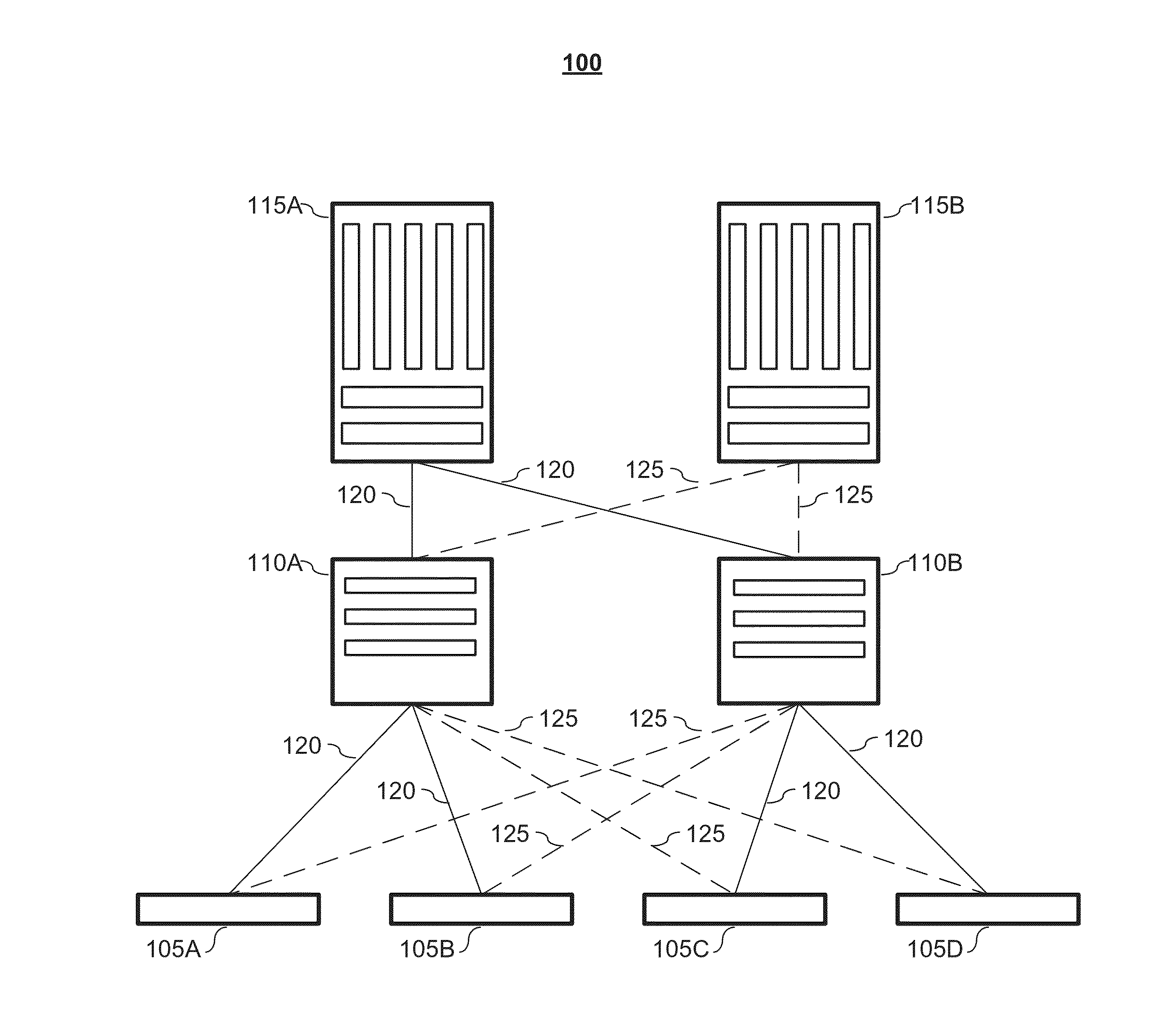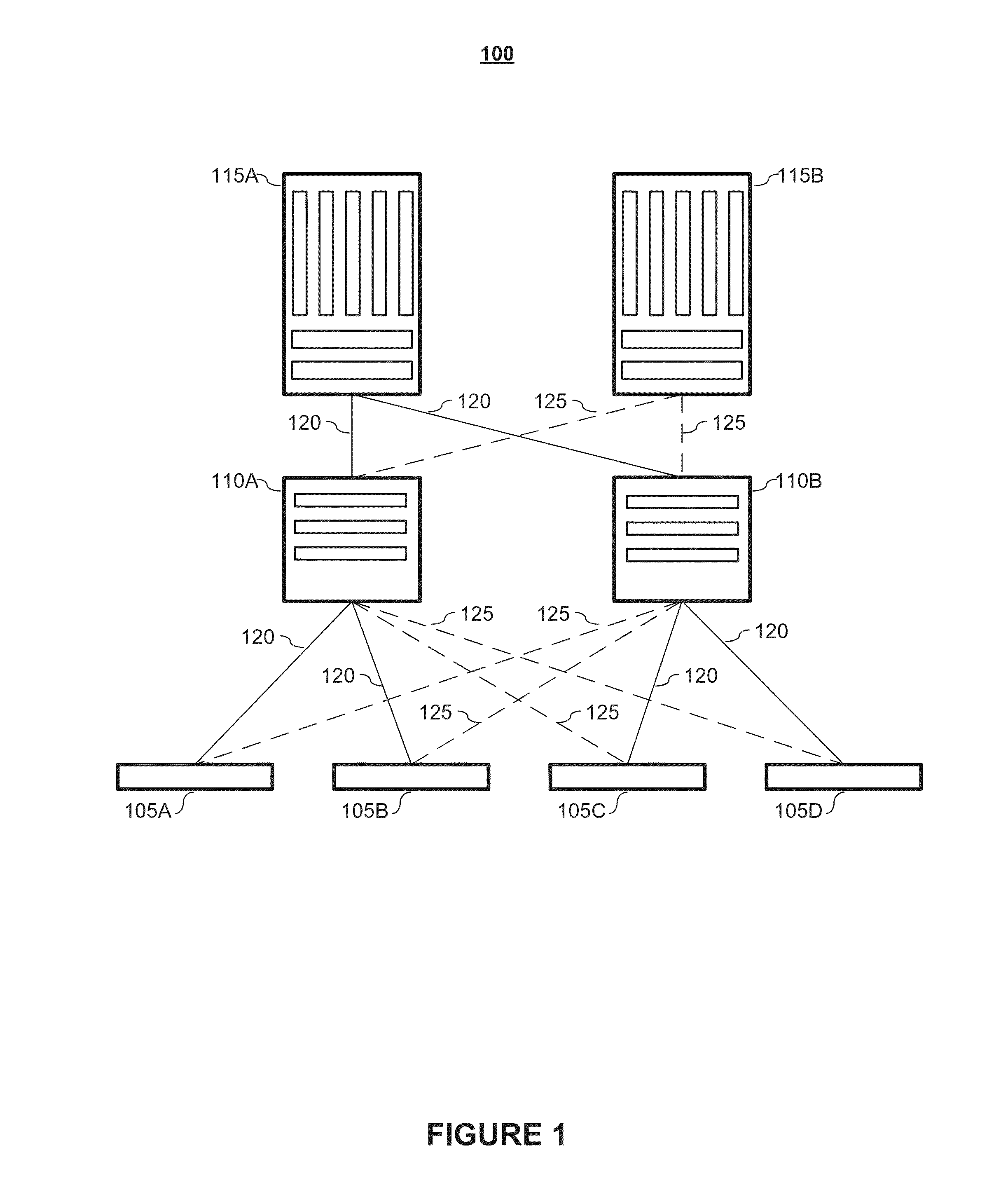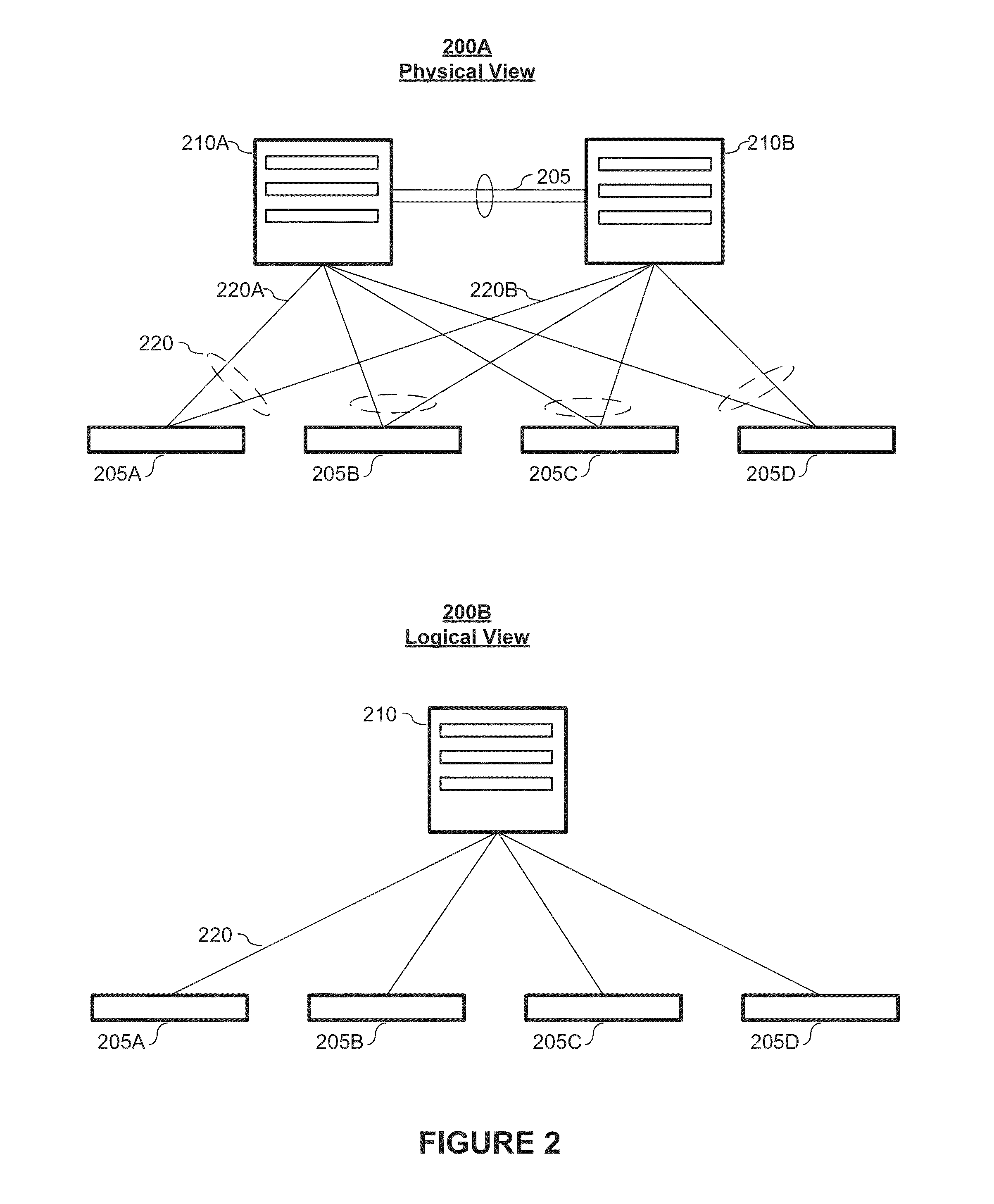N-Node Virtual Link Trunking (VLT) Supporting Arbitrary Topologies
a virtual link trunking and topology technology, applied in data switching networks, high-level techniques, digital transmission, etc., can solve problems such as network loops, network links that are fatal to networks, and networks using redundant links with stp that have links that are underutilized
- Summary
- Abstract
- Description
- Claims
- Application Information
AI Technical Summary
Benefits of technology
Problems solved by technology
Method used
Image
Examples
example 1
[0287]FIG. 13 depicts an example embodiment of an N-Node VLT system 1300 according to embodiments of the present invention. Depicted in FIG. 13 are four nodes N1 (1305-1), N2 (1305-2), N3 (1305-3), and N4 (1305-4), which form a 4-node VLT system 1320.
[0288]In forming the VLT system, the nodes are connected via a plurality of links 1325. These links may be referred to, interchangeably, as inter-node links (INLs), inter-chassis links (ICLs), or Virtual Link Trunk Interfaces (VLTIs). As shown in the embodiment depicted in FIG. 13, the nodes (N1-N4) are connected in a full mesh. While the depicted embodiment is a physical full mesh, it shall be noted that the nodes may be in a logical full mesh.
[0289]Also depicted in FIG. 13 are a number of VLT LAGs. External node E11310-1 has three links, which terminate on nodes N1, N3, and N4. These three links together form a VLT LAG, namely VLT11315-1. External node E21310-2 has four links that together form VLT21315-2. These links terminate on nod...
example 2
[0300]FIG. 14 depicts an example embodiment of an N-Node VLT system 1400 according to embodiments of the present invention. The system depicted in FIG. 14 has four nodes N1 (1405-1), N2 (1405-2), N3 (1405-3), and N4 (1405-4), which form a 4-node VLT system 1420. The embodiment depicted in FIG. 14 is the same configuration as in FIG. 13. Thus, it has the same VLT memberships, the same assigned nodes, and the same egress mask.
[0301]In embodiments, using the system 1400 depicted in FIG. 14 as an example, the handling of broadcast / unknown unicast packets may be processed as follows. First, external node E1 (1410-1) sends (1450) a broadcast packet to node N3 (1405-3). Node N3 (1405-3) floods (1455) the broadcast packets to all its local ports including all its ICL ports. The nodes N1, N2, and N4 flood (1460) the packets to their local ports based on their port blocks. Note that traffic ingressing on ICL(N3-N2) on node N2 is allowed to exit / egress on VLT3, as node N2 is the assigned node ...
PUM
 Login to View More
Login to View More Abstract
Description
Claims
Application Information
 Login to View More
Login to View More - R&D
- Intellectual Property
- Life Sciences
- Materials
- Tech Scout
- Unparalleled Data Quality
- Higher Quality Content
- 60% Fewer Hallucinations
Browse by: Latest US Patents, China's latest patents, Technical Efficacy Thesaurus, Application Domain, Technology Topic, Popular Technical Reports.
© 2025 PatSnap. All rights reserved.Legal|Privacy policy|Modern Slavery Act Transparency Statement|Sitemap|About US| Contact US: help@patsnap.com



